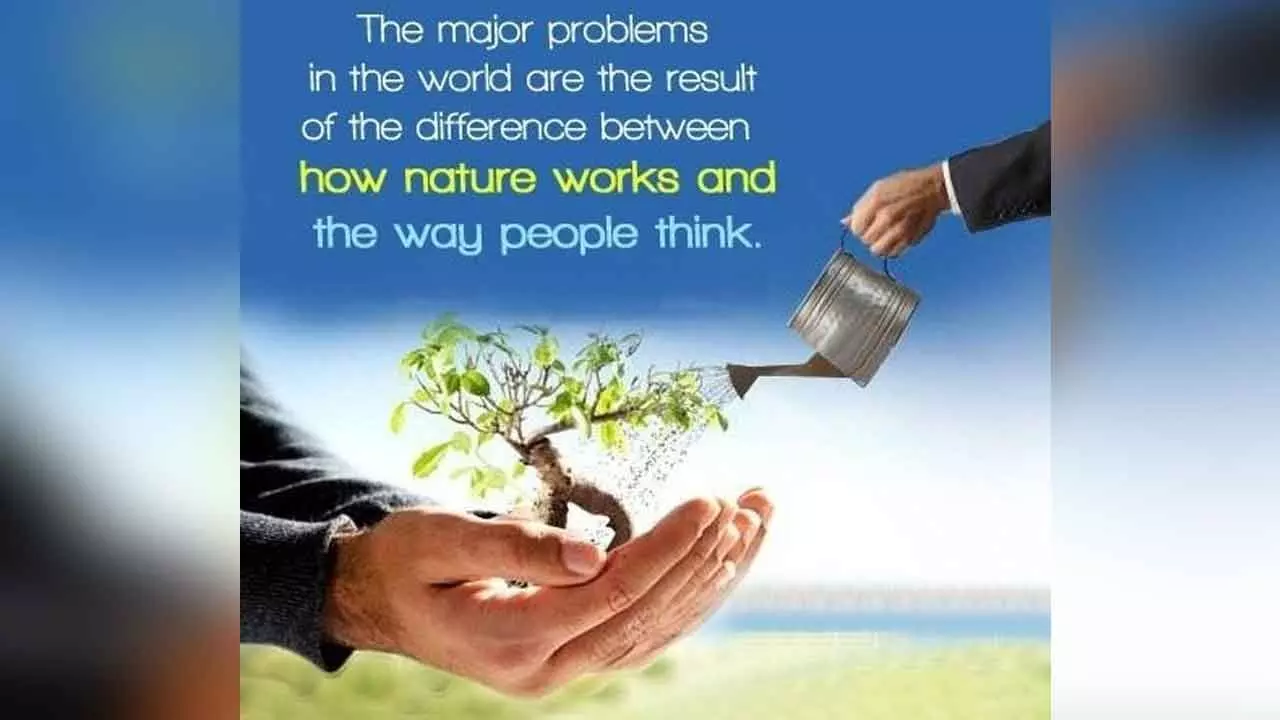Cleanliness Key To Meaningful Environment Friendliness Should Be The Governing Mantra
“Together for a Better Tomorrow” called for a comprehensive action plan for a cleaner and greener nation
Cleanliness Key To Meaningful Environment Friendliness Should Be The Governing Mantra

Researchers Diane Coffey and Dean Spears from the Research Institute for Compassionate Economics, RICE, state that questions related to India’s outlawed but prevailing caste concepts are central to understanding the issue
Air pollution kills 13 people every minute worldwide and evidence continues to reveal new connections between polluted air and adverse health effects. As urbanization increases and air quality deteriorates, addressing emissions to protect public health is critical.
Cities worldwide are increasingly taking action to counter air pollution. 50 cities participating in C40's Cities Clean Air Accelerator and 35 cities from C40’s Green and Healthy Streets Accelerator are committed to launching innovative strategies and bold initiatives to clean their air and protect the wellbeing of residents.
Leaders of clean-up organizations from across India discussed actionable strategies to tackle pollution and promote responsible cleanup and waste management practices at a confluence held recently.
The confluence aimed to produce actionable strategies to tackle pollution and promote responsible cleanup and waste management practices.
Dia Mirza, UN Environment Goodwill Ambassador, emphasized the event’s significance, stating: "Events like the India Clean-Up Confluence are key to driving meaningful change. I extend my heartfelt support and appreciation to the team and this initiative, wishing them continued strength, determination, and success. Together, we can make a lasting difference. I am deeply grateful to everyone here and encourage all of us to unite in this movement, working together to restore the health of our planet.”
The success of this event lies in its ability to inspire and unite diverse groups with a shared purpose. The actionable outcomes offer a clear, strategic roadmap for communities, businesses, and government to collaborate and tackle waste more effectively, driving lasting environmental change.
Under the theme, “Together for a Better Tomorrow,” the event underlined the need for developing a comprehensive action plan outlining the next steps toward a cleaner, greener India. Open defecation is one of the world’s greatest health risks and a leading cause of child mortality, which is why the United Nations want the practice stamped out by 2030.
Five years ago, India was home to 60 per cent of the world’s open defecators, but the government claims that this number has been drastically reduced under its Clean India Mission programme, also known as the Swachh Bharat Mission.
Professor Val Curtis of the London School of Hygiene and Tropical Medicine argues that behavioural change at decision-making level has been just as important as the changes seen at community level.
She interviewed national and local government staff and found that senior political support and disruptive leadership led to changed behaviour among decision-makers and that this made them more credible among the general public.
Human Rights Watch and other organizations have. However. warned that the methods for creating social disapproval can lead to downright human rights abuses, especially against marginalized groups like Dalits and Adivasis. The topic has been hotly debated after two children were killed in September for allegedly defecating in the open, causing the Department of Drinking Water and Sanitation to issue a statement condemning coercion as a method to achieve the goal.
Researchers Diane Coffey and Dean Spears from the Research Institute for Compassionate Economics, RICE, state that questions related to India’s outlawed but prevailing caste concepts are central to understanding the issue. “Untouchability and social inequality are important parts of why open defecation continues,” they write. Poor families are most likely to be shamed and punished for open defecation but may not be able to afford to build a latrine.
Coffey and Spears raise the question if the goal to end all open defecation within five years was in fact too unrealistic and if this can have triggered some people to either tinker with statistics or to accept draconian measures.
They write: “The other foreseeable consequence of an extreme goal is to legitimise extreme methods. And in a country in which nearly a third of households admit to practicing untouchability (Thorat and Joshi 2015), it is not a surprise that when local government officials sanctioned coercion and intimidation as means of achieving Swacch Bharat, the consequences would fall most heavily on the already disadvantaged.”
The Indian government, on the other hand, has dismissed the comments made by Coffey and Spears as “misleading” and “outrageous”, and points to reports from UNICEF and others about health benefits from the campaign.
Waste management, an important intervention in many cities in the global south, is a focus for signatories of the C40 Cities Clean Air Accelerator, especially in Africa. Sub-Saharan Africa collects 43 per cent of urban waste (nine per cent rural), with nearly 70 per cent disposed of in open dumps. Interventions include composting, recycling and optimizing waste collection.

